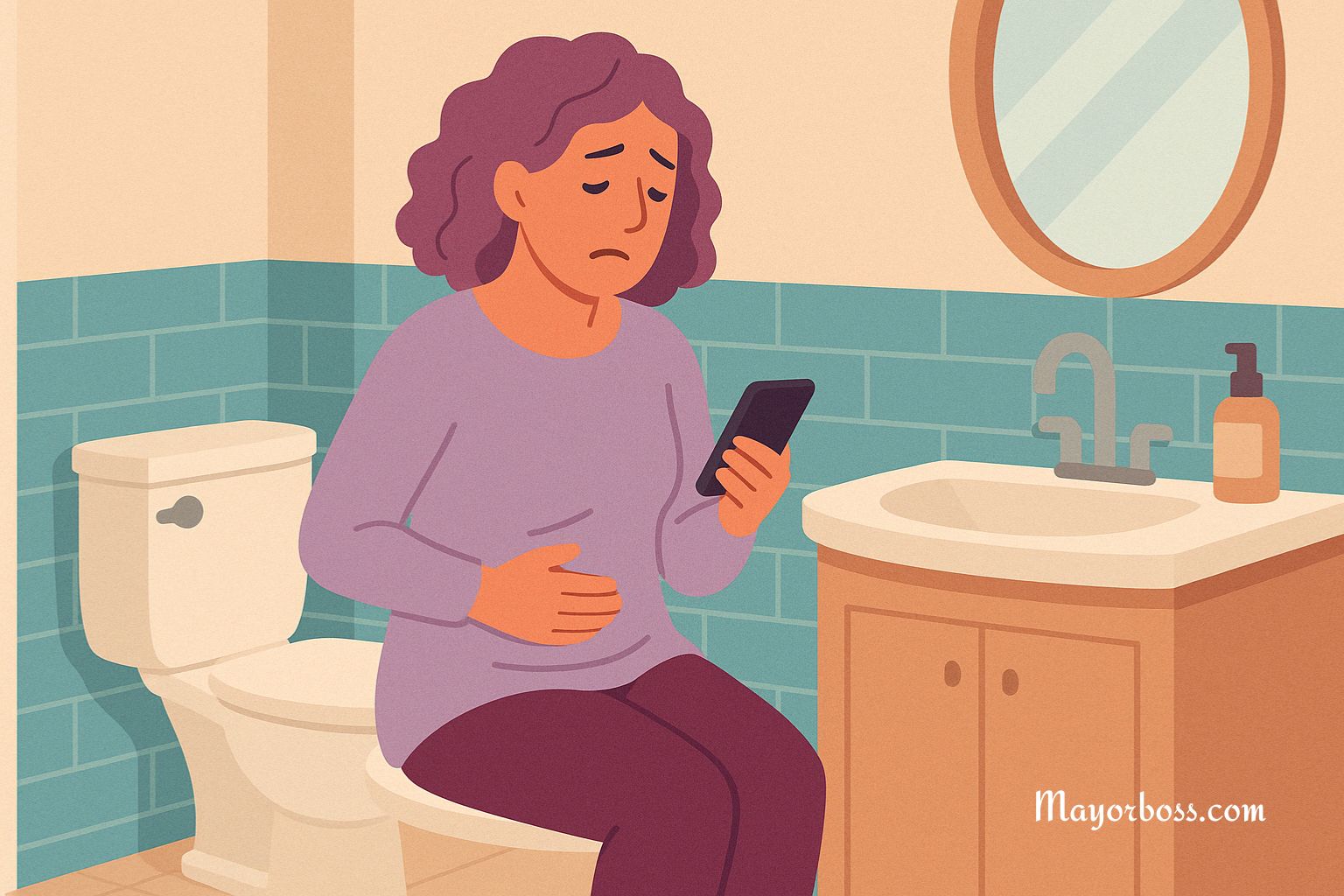6 Reasons Why Your Poop Might Be Sticky—and What to Do About It
Sticky stool can feel alarming, yet it often signals a problem you can solve with a few targeted changes—or, when needed, help from your healthcare provider. Right now, I will explain the most common causes of sticky poop, and practical steps to bring your bowel habits back to normal.

1. Eating Too Much Fat at Once
When a meal contains more fat than your small intestine can break down, undigested fat passes into the colon. There, it binds with stool and leaves a greasy, sticky film in the toilet bowl.
What to do:
- Start reading labels and limit fried foods, heavy cream, and rich desserts.
- Swap in lean protein, steamed vegetables, and whole‑grain alternatives.
- If greasy stool continues beyond a week despite a lighter menu, book an appointment with your primary‑care physician or a registered dietitian.
2. Insufficient Digestive Enzymes
Your pancreas releases enzymes that slice fats, proteins, and carbohydrates into absorbable pieces. When the gland underperforms—a concern in chronic pancreatitis, cystic fibrosis, or after certain surgeries—food remains partly digested and stool becomes bulky, foul‑smelling, and sticky.
What to do:
- Keep a log of foods that worsen symptoms, then share it with your doctor.
- Request stool fat testing and pancreatic enzyme evaluations.
- Enzyme replacement capsules, taken with meals, often restore comfortable digestion.
3. Celiac Disease or Non‑Celiac Gluten Sensitivity
Gluten can flatten intestinal villi in people with celiac disease, reducing nutrient absorption and allowing unabsorbed fats to escape into the stool. Even without true celiac disease, some individuals react to gluten with bloating, cramping, and sticky bowel movements.
What to do:
- Ask for a blood test for tissue transglutaminase antibodies before you eliminate gluten.
- If tests confirm celiac disease, a strict gluten‑free diet lets the intestine heal.
- Work with a dietitian to ensure adequate fiber, iron, and B vitamins while avoiding hidden gluten sources.
4. Intestinal Infections
Parasites such as Giardia lamblia, certain viruses, or bacterial overgrowth disrupt the gut lining and hamper fat absorption. Stools may appear sticky, frothy, or unusually pale. Accompanying symptoms often include cramps, urgency, or mild fever.
What to do:
- Provide a stool sample to pinpoint the cause; treatment ranges from a single antibiotic dose to a short antiviral course.
- Rehydrate with an oral rehydration solution to replace electrolytes lost to diarrhea.
- After treatment, restore gut balance with yogurt containing live cultures or a clinician‑recommended probiotic.
5. Inflammatory Bowel Disease (IBD)
Crohn’s disease and ulcerative colitis inflame the digestive tract, making stool loose, sticky, and sometimes bloody. Left unchecked, inflammation may rob you of nutrients, energy, and quality of life.
What to do:
- Seek prompt evaluation if you notice persistent sticky stool paired with abdominal pain, weight loss, or blood.
- Your gastroenterologist may order a colonoscopy, imaging, or bloodwork to gauge inflammation.
- Modern IBD therapies—ranging from mesalamine to advanced biologic agents—can calm symptoms and protect long‑term gut function.
6. Bile Acid Malabsorption
Bile, produced in the liver and stored in the gallbladder, emulsifies fat so enzymes can finish digestion. When bile acids spill into the colon—after gallbladder removal or with certain ileal conditions—they draw water into stool and give it a sticky, pasty texture.
What to do:
- Mention recent gallbladder surgery or unexplained diarrhea during your visit; a simple SeHCAT scan or trial therapy may confirm the diagnosis.
- If bile acid loss is responsible, bile‑binding medications (such as cholestyramine) or a low‑fat eating pattern often resolve symptoms.
When to Call the Doctor
- Sudden change in stool lasting more than seven days
- Unintended weight loss or fatigue
- Persistent abdominal pain or cramps
- Dark, tarry, or bloody stool
Simple Daily Habits for Healthier Stools
- Drink at least six to eight glasses of water each day.
- Aim for 25–30 grams of dietary fiber from fruits, vegetables, legumes, and whole grains.
- Exercise briskly for 30 minutes most days to boost gut motility.
- Limit alcohol and quit smoking—both irritate the intestine.
Takeaway
Sticky poop is a symptom, not a verdict. Whether the cause involves diet, enzymes, infection, inflammation, or bile acids, a focused plan—guided by your health‑care team—can restore comfortable digestion and safeguard long‑term gut health. If changes in food choices and hydration do not solve the issue within a week, schedule a professional assessment.
